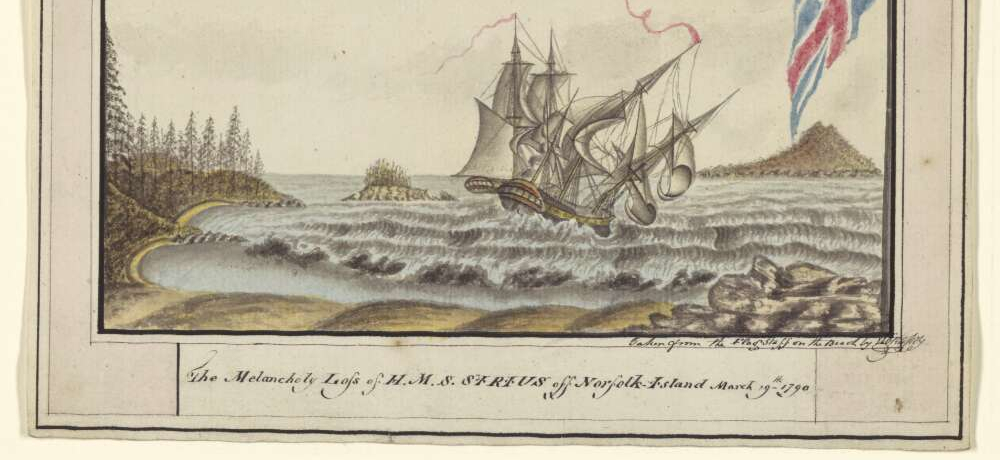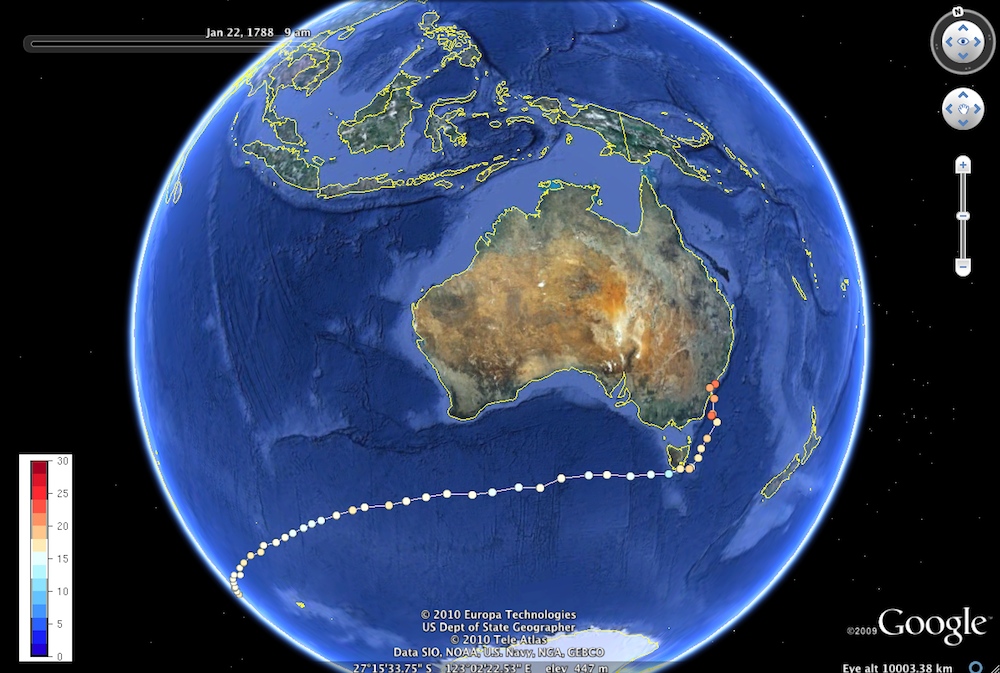HMS Sirius Lieutenant William Bradley recorded the daily noon temperature in his weather journal maintained over the course of the First Fleet’s journey from 1787-1788. He continued to record the noon temperature while the HMS Sirius was anchored at Port Jackson during the first eight months of the settlement of Sydney Cove.
Analysis of these observations is now published in The weather of the First Fleet voyage to Botany Bay, 1787–1788, Gergis et al., 2010.
You can also read a piece written by Dr Joëlle Gergis in The Conversation here: Black skies and raging seas: how the First Fleet got a first taste of Australia’s unforgiving climate.
This work forms part of the global effort to recover historical weather data, the Atmospheric Circulation Reconstructions over the Earth (ACRE) Initiative. Further details of Bradley’s weather record are available at OldWeather.org.
The route of this historic journey of the Sirius can be viewed in the video below, prepared by Dr Philip Brohan of the UK Met Office.
Climate researchers interested in downloading the data of the weather conditions of the First Fleet voyage can find it here.
People interested in more information on the different journals kept by the First Fleet can visit: https://www.jenwilletts.com/botany_bay_fleet.htm
And, there’s a volunteer journal digitisation project, transcribing the female convict ship records here: https://www.femaleconvicts.org.au/convict-ships/convict-ship-records.
*This article was updated on 28 August 2020. Unfortunately, the Google Earth animation, made in 2010, of the voyage together with the temperatures experienced by those aboard the Sirius, stopped working.
CREATing AUSTRALIA’S LONGEST DAILY WEATHER RECORDs
To understand extreme conditions in Australia – such as drought, bushfires, heatwaves and floods – we need to look back at these events in the past. But there are a few missing pieces of the puzzle in Australia’s early weather records.
Thousands of volunteers around the globe have participated in our data rescue projects on the citizen science platform, Zooniverse. The projects involved transcribing observations from handwritten journals to help link together our country’s historical climate with modern records. While we don’t currently have any more Zooniverse data rescue projects coming up, you can sign up to our e-newsletter to stay up-to-date with our latest results, research and other news.
SUBSCRIBE TO OUR E-NEWSLETTER
We send an email every few months with our latest news, research and citizen science weather rescue projects. Click here to sign up and stay informed.

